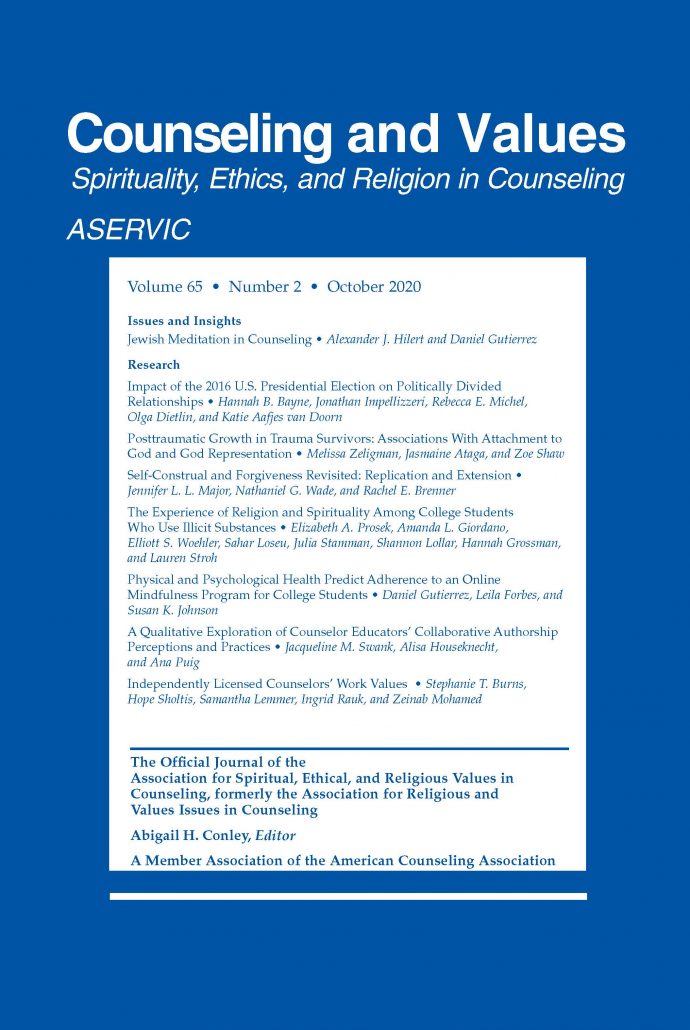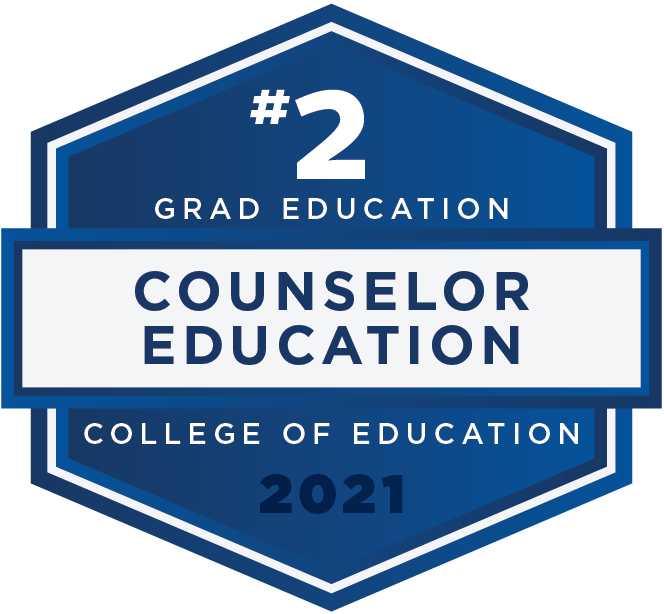The latest edition of the Counseling and Values — the official journal of the Association for Spiritual, Ethical, and Religious Values in Counseling (ASERVIC), a division of the American Counseling Association — features four articles written by several of our own exemplary Counselor Education faculty and students. Publishing in this journal is a notable accomplishment, and we are proud to see so many of our EduGators recognized for their research.
Impact of the 2016 U.S. Presidential Election on Politically Divided Relationships
Hannah B. Bayne, Jonathan Impellizzeri, Rebecca E. Michel, Olga Dietlin, Katie Aafjes van Doorn
Abstract: Political identity represents a salient component of counselor and client identity tied to one’s values and beliefs. The 2016 U.S. presidential election has been viewed as an especially divisive political environment that may have heightened emotion and elevated personal and collective political identities to new levels of awareness. We present findings from a consensual qualitative research study exploring personal and relational impacts of the election and discuss participants’ (N = 16) strategies for relationship maintenance.
Posttraumatic Growth in Trauma Survivors: Associations With Attachment to God and God Representation
Melissa Zeligman, Jasmaine Ataga, Zoe Shaw
Abstract: Individuals often turn to religion or spirituality to cope with or make sense of trauma. In this study of 222 university students who reported a history of trauma, we examined whether God representation and attachment to God were associated with posttraumatic outcomes. Trauma outcomes include both the negative impacts of trauma and the perceived posttraumatic growth (PTG) that can occur in trauma survivors. Results revealed that both an authoritarian representation of God and an avoidant attachment to God were predictive of experiences of PTG.
The Experience of Religion and Spirituality Among College Students Who Use Illicit Substances
Elizabeth A. Prosek, Amanda L. Giordano, Elliott S. Woehler, Sahar Loseu, Julia Stamman, Shannon Lollar, Hannah Grossman, Lauren Stroh
Abstract: Nine collegiate illicit substance users participated in a phenomenological study of their perceptions of religion, spirituality, and substance use. We identified three themes from the interviews: (a) development of substance‐using behaviors, (b) journey with religion and spirituality, and (c) intersectionality of substance use and religious and spiritual journeys. The participants voiced a complex bidirectional relationship among use behaviors, religion, and spirituality that could be facilitative, adverse, or divergent. We provide implications and suggestions for future research.
A Qualitative Exploration of Counselor Educators’ Collaborative Authorship Perceptions and Practices
Jacqueline M. Swank, Alisa Houseknecht, Ana Puig
Abstract: Limited research exists that examines the ethics of counselor educators’ collaborative authorship practices. The study purpose was to explore the collaborative authorship decision‐making perceptions and practices of counselor educators (N = 11). We identified six themes: (a) human process and communication, (b) context and nature of relationships, (c) learning experiences about authorship, (d) academic and career stage expectations, (e) collaborative authorship practices, and (f) philosophy of authorship. Implications and recommendations for research are discussed.
Congratulations again to the members of our Counselor Education department for receiving this recognition. View the full October 2020 issue of the Journal of Counseling and Values here: https://onlinelibrary.wiley.com/toc/2161007x/2020/65/2.
Learn more about our Counselor Education program, ranked among the top 10 programs nationally since 1998, currently ranked No. 2, at: https://education.ufl.edu/counselor-education/








